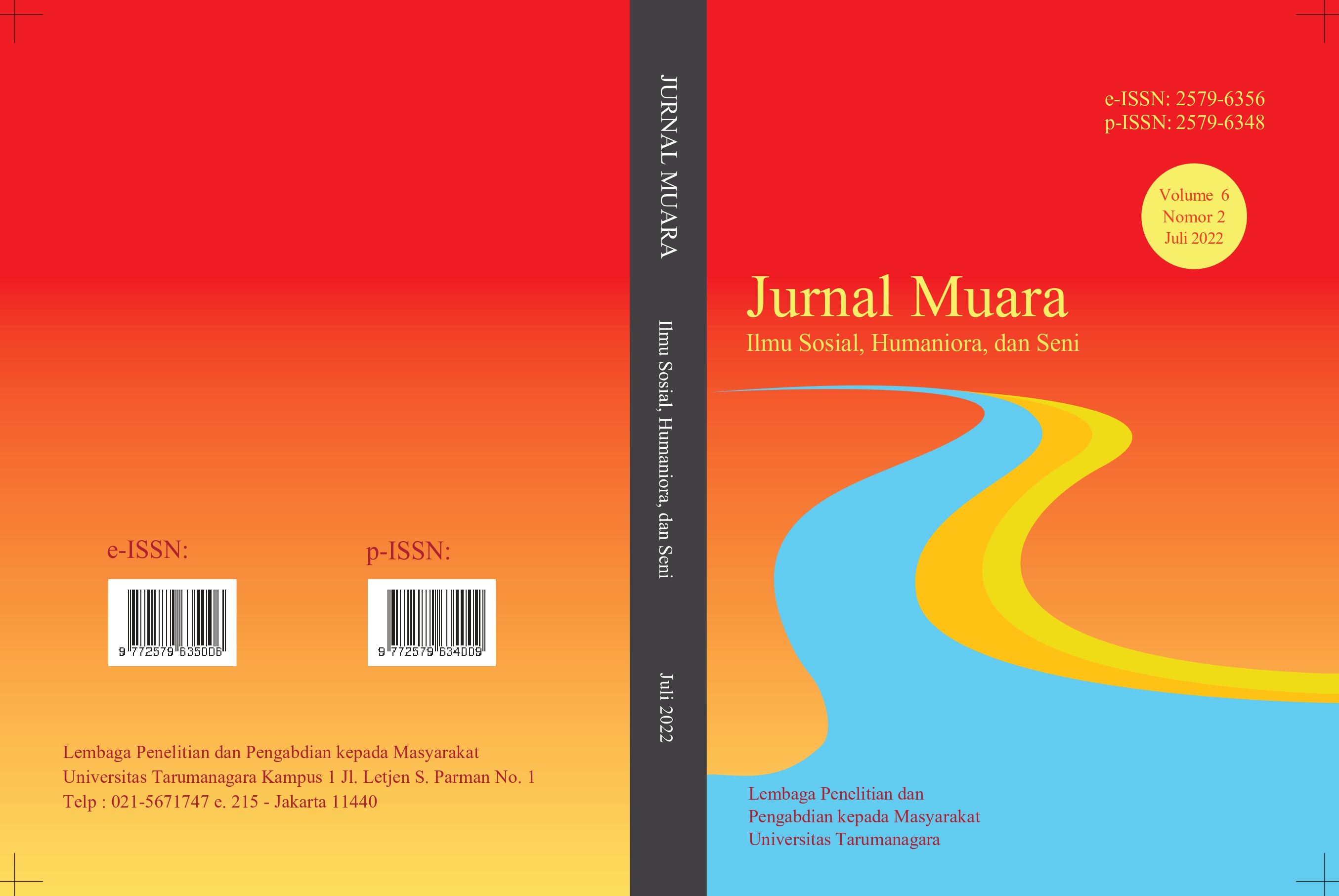HEDONIS SEBAGAI MODERATOR PADA FOMO DAN CONFORMITY CONSUMPTION BEHAVIOR REMAJA PENGGUNA SMARTPHONE X
Main Article Content
Abstract
Pengguna telepon seluler pintar di kalangan remaja meningkat. Peningkatan kepemilikan telepon seluler pintar didorong oleh kebutuhan sosialisasi agar tidak terpisah dari pertemanannya dan mencegah fear of missing out (FoMO). Penyesuaian diri dilakukan demi pengakuan, termasuk saat membeli barang (Conformity Consumption Behavior). Penelitian sebelumnya menunjukkan inkonsistensi pada peran Fear of Missing Out dan Conformity Consumption Behavior. Penelitian ini bertujuan menguji hedonism sebagai variabel moderator pada peran fear of missing out terhadap conformity consumption behavior remaja pengguna telepon seluler pintar X di DKI Jakarta. Partisipan adalah 226 remaja yang dikumpulkan dengan teknik snowball sampling. Tiga alat ukur digunakan yaitu Fear of Missing Out, Conformity Consumption Behavior, Gaya Hidup Hedonisme. Hasil analisis data menggunakan uji regresi sederhana untuk menguji peran Fear of Missing Out terhadap Conformity Consumption Behavior. Dalam penelitian ini menunjukkan bahwa Fear of Missing Out berperan secara signifikan terhadap Conformity Consumption Behavior. Sementara hedonism tidak memoderasi peran Fear of Missing Out terhadap Conformity Consumption Behavior.
Article Details

This work is licensed under a Creative Commons Attribution-NonCommercial-ShareAlike 4.0 International License.
This work is licensed under a Jurnal Muara Ilmu Sosial, Humaniora, dan Seni Creative Commons Attribution-ShareAlike 4.0 International License.References
Abel, J. P., Buff, C. L., & Burr, S. A. (2016). Social media and the fear of missing out: Scale development and assessment. Journal of Business & Economics Research, 14(1), 33-44.
Anonymous. (2018). Alasan generasi milenial lebih konsumtif. CNN Indonesia. https://www.cnnindonesia.com/gaya-hidup/20180418215055-282-291845/alasan-generasi-milenial-lebih-konsumtif
Arinda, D. (2021). Konformitas dengan Gaya Hidup Hedonisme pada Mahasiswa. Psikoborneo, 9(3), 528-534. DOI: 10.30872/psikoborneo
Conlin, L., Billings, A. C., & Averset, L. (2016). Time-shifting vs. appointment viewing: The role of fear of missing out within TV consumption behaviors. Communication & Society, 29(4), 151-164.
Escalas, J. E., & Bettman, J. R. (2003). You are what they eat: The influence of reference groups on consumers’ connections to brands. Journal of Consumer Psychology, 13(3), 339-348. https://doi.org/10.1207/S15327663JCP1303_14
Hashmi, H. B. A., Shu, C., & Haider, S. W. (2020). Moderating effect of hedonism on store environment-impulse buying nexus. International Journal of Retail & Distribution Management, 48(5), 465-483. DOI 10.1108/IJRDM-09-2019-0312
Hyun, S. S. & Kang, J. (2014). A better investment in luxury restaurants: Environmental or non-environmental cues? International Journal of Hospitality Management, 39, 57-70. http://dx.doi.org/10.1016/j.ijhm.2014.02.003
Kang, I., Cui, H., & Son, J. (2019). Conformity consumption behaviour and FoMo. Sustainability, 11, 1-18. doi:10.3390/su11174734
Kang, I., He, X., & Shin, M. M. (2020). Chinese consumers’ herd consumption behaviour related to Korean luxury cosmetics: The mediating role of fear of missing out. Frontiers in Psychology, 11, 1-13. doi: 10.3389/fpsyg.2020.00121
Kementrian Kesehatan RI. (Tanpa Tahun). Situasi kesehatan reproduksi remaja. Infodatin. https://pusdatin.kemkes.go.id/resources/download/pusdatin/infodatin/infodatin-reproduksi-remaja.pdf
Liyanage, K. & Tennakoon, W. D. (2020). Factors affecting generation y’s consumer conformity behaviour in social networking sites; with special reference to retail fashion industry in Colombo district, Sri Lanka. Wayamba Journal of Management, 11(2), 25-36. DOI: http://doi.org/10.4038/wjm.v11i2.7471
Mahrunnisya, D., Indriayu, M., & Wardani, D. K. (2018). Peer conformity through money attitudes toward adolescene’s consumptive behaviour. International Journal of Multicultural and Multireligious Understanding, 5(4), 30-37.
Merchant, B. (2017). The one device: The secret history of the iphone. New York: Hachette Book Group, Inc.
Myers, D. G., & Twenge, J. M. (2016). Social psychology (12th ed). New York: McGraw-Hill Education
Nurvitria, A. L. (2015). Pengaruh gaya hidup hedonisme terhadap perilaku pembelian impulsif pada mahasiswa Jurusan PBB 2013 FIP UNY. Universitas Negeri Yogyakarta, Yogyakarta. https://www.semanticscholar.org/paper/PENGARUH-GAYA-HIDUP-HEDONIS-TERHADAP-PERILAKU-PADA-Nurvitria/afd6b88b7d1664e203d88ba717123099d8ea505c#paper-header
Papalia, D. E., & Martorell, G. (2011). Experience human development. New York: McGraw-Hill.
Przybylski, A. K., Murayama, K., Dehaan, C. R., & Gladwell, V. (2013). Motivational, emotional, and behavioral correlates of fear of missing out. Computers in Human Behavior, 29(4), 1841–1848. https://doi.org/10.1016/j.chb.2013.02.014
Putri, D. L. (2019). 5 fakta mahasiswi asal Makassar rekayasa diculik dan minta tebusan rp 25 juta untuk beli iphone x. Tribunnews.com. https://www.tribunnews.com/regional/2019/07/23/5-fakta-mahasiswi-asal-makassar-rekayasa-diculik-dan-minta-tebusan-rp-25-juta-untuk-beli-iphone-x
Rahmawati, & Ramadania, G. S. (2018). Do brand credibility and altruistic attribution affect corporate philanthropy performance? – The moderating effect of gen y’s hedonic behaviour. International Journal of Business and Society, 19(1), 27-40.
Ramadhani, M. T., Yulianti, E., & Djuari, L. (2019). Profile of parenting style in university students with tendency of hedonism lifestyle. Journal of Aesculap Medical Science, 1, 29-33.
Roberts, J. A., & David, M. E. (2020). The social media party: Fear of missing out (FoMO), social media intensity, connection, and well-being. International Journal of Human-Computer Interaction, 36(4), 386–392. https://doi.org/10.1080/10447318.2019.1646517
Ryan, R. M. & Deci, E. L. (2000). Self-Determination Theory and the facilitation of intrinsic motivation, social development, and well being. American Psychologist, 55(1), 68-78. DOI:10.1037/0003-066X.55.1.68
Santoso, I. H., Widyasari, S., & Soliha, E. (2019). Fomsumerism: Mengembangkan perilaku conformity consumption dengan memanfaatkan fear of missing out konsumen. Jurnal Ilmiah Bisnis dan Ekonomi Asia, 15(2), 159-171.
Saunders, D. E. (2018). Kecintaan mahasiswa universitas kristen petra terhadap merek apple. AGORA, 6(1), 1-10.
Sukarno, N. F., & Indrawati, E. S. (2018). Hubungan konformitas teman sebaya dengan gaya hidup hedonis pada siswa di SMA PL Don Bosko Semarang. Jurnal Empati, 7(2), 314-320.
Valufi, E. & Astuti, R. B. (2020). Types of hedonism on the main character sir Walter Elliot in the novel persuasion by Jane Austen. Journal of Language and Literature, 8(1). https://doi.org/10.35760/jll.2020.v8i1.2525
Velensia, M., Soetikno, N., & Chandika, J. (2021). The role of conformity toward the self-control on adolescence cyberbullying. Advances in Social Science, Education and Humanities Research, 570.
Williams, D. M., Rhodes, R. E., & Conner, M. T. (2018). Affective determinants of health behavior. New York: Oxford University Press.


